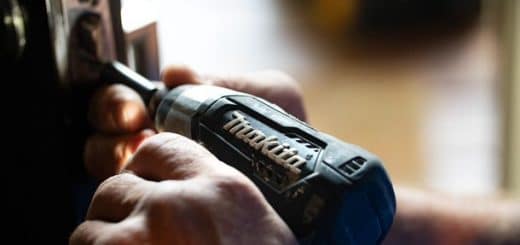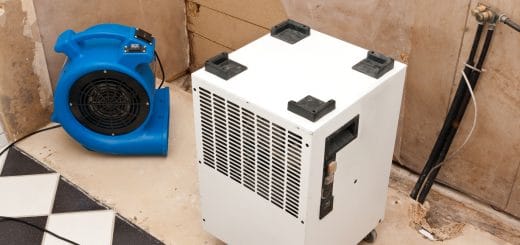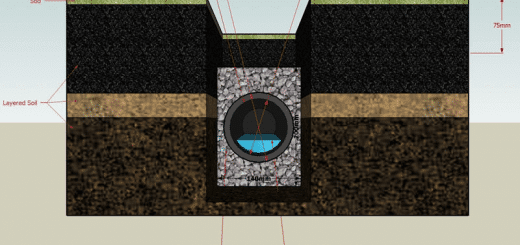Why is my air conditioner leaking water outside?
Air conditioners are a life saver, especially in hot, humid climates. However, there are risks associated with this cooling system, such as the potential to leak water if it is not maintained regularly. Air conditioners not only cool your home, but also remove moisture from the air. The moisture collected by the air conditioner produces condensation that is collected in a drain pan within the air conditioner and disposed of through a drain line. Any damage or dirt and debris buildup on the components of the air conditioner can leadLead is a heavy metal that can be toxic to humans, especiall... More to water leaks. If the leaks go unnoticed for a period of time, they can cause significant water damage to your building materials including carpeting, baseboards, walls, and ceilings.
Leaks from the air conditioner can cause serious issues such as structural damage and moldMold is a type of fungus that grows in damp or humid conditi... More growth. Fortunately, you can take steps to prevent air conditioner leaks. In this guide, we discuss the main causes of air conditioner leaks as well as how to prevent these leaks. If air conditioner leaks cause significant damage in your home, make sure to call a water damage restoration professional.
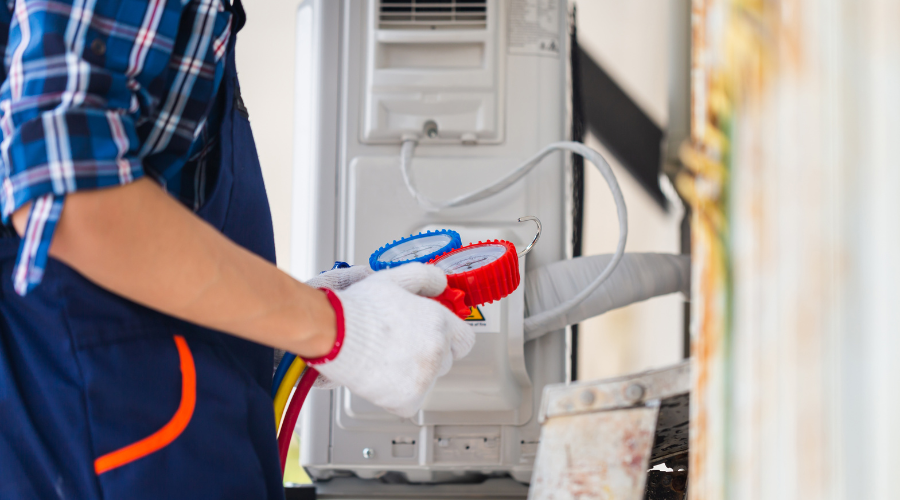
What Causes Air Conditioners to Leak?
Air conditioners extract moisture from the air which is why they are vulnerable to leaks. Water can leak from the central air unit and seep in through the foundation or from the air vents if there is too much condensation. Window air conditioner units may also leak if there is dirt buildup or damage. Leaks from the air conditioner can cause serious property damage as the water gets absorbed into the surrounding flooring, drywall, insulationInsulation is a material used in buildings to reduce the tra... More, and other porousPorous describes a material that contains small openings or ... More materials. Understanding the main causes of air conditioner leaks will help you find leaks when they occur and take steps to prevent them.
The following are the main causes of leaks from the air conditioner:
Clogged Drain Pipe
The air conditioner produces condensed water that is collected in a drain pan . A drain line connects to the pan and directs the condensation into another pipe for proper drainage. If there is a buildup of grime, such as moldMold is a type of fungus that grows in damp or humid conditi... More, dirt, algae, and mineral depositsMineral deposits are solid residues left behind when water e... More, this can create a blockage in the drain pipe and cause a leak.
Here is what you can do to prevent clogs in the drain pipe:
- There are special vacuums available that allow you to safely extract any debris from the drain pipe. Just be sure you remove all the debris causing the blockage or there will likely be a leak.
- You can create a mixture of warm water and bleach to effectively kill the bacteria. However, this step is not highly recommended if the pipes in your home are worn down. The chemicals from the bleach can further deteriorate the pipe.
- There are devices you can install on your A/C unit that turn it off automatically when a blockage is detected within the drain pipe.
Damage to the Drain Pan
Excess water and moisture collected by the air conditioner gathers in an overflow drain pan. This pan is typically made of metal, but over time, it can rustRust is a reddish-brown oxide that forms on iron or steel du... More and become damaged, resulting in water leaks. If you have just discovered the leaks after they have been occurring over a period of time, be sure to call a water restoration service right away. If you notice a leak from the drain pan before serious damage has occurred, here is what you can do:
- If you believe the drain pan is damaged, use a flashlight to inspect the damage and determine where exactly the leaks are located.
- You should consider patching the holes using epoxy glue, or replacing the pan altogether.
Dirty Air Filter
Air filters must be replaced every 1 – 2 months to allow for the most efficient air flow. When the air filter gets dirty, the cooled air will only pass through the coils of the evaporator. This will cause the water to freeze onto the coils. When the ice on the coils melts, it will drip water that can leak out into your home and cause damage. You can avoid these types of leaks by simply changing the air filters on a regular basis.
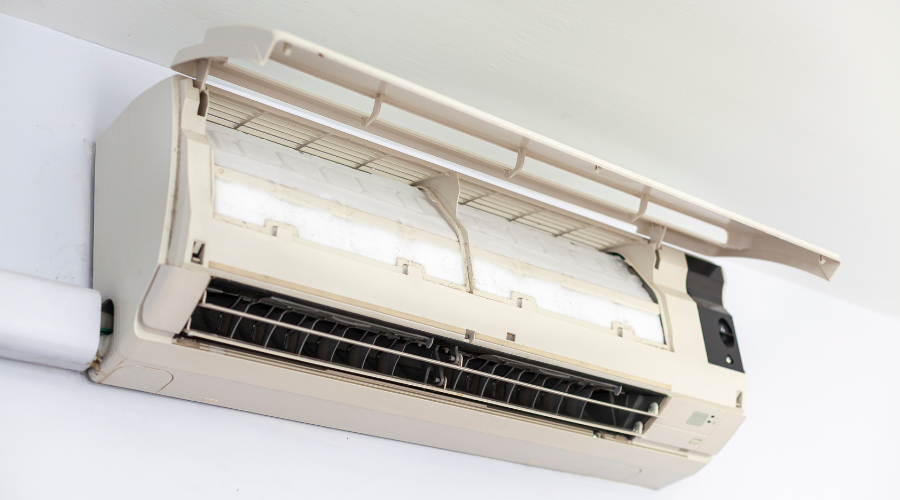
How to Prevent Water Leaks from the Air Conditioner
One of the problems with water leaks from the air conditioner is that aren’t discovered until they have already caused damage. The best course of action is to help prevent these leaks. Following these tips reduces the risk of air conditioner leaks:
- Schedule routine inspections of your air conditioner in the spring and possibly in the fall to for cleanup and repairRepair is the act of fixing or restoring damaged property, m... More. It is best to have a professional manage the inspectionInspection is the careful examination and assessment of a pr... More so they can find and address any issues.
- Look for air leaks around doors and windows and close the gaps with caulk or new weather stripping. This will improve the efficiency of the air conditioner and reduce the risk of leaks from overworking.
- TrimTrim is the decorative or functional molding used to finish ... More grass and shrubs surrounding the central air unit.
- Change the HVAC filter at least once each month for maximum efficiency.
- Clean the condenser in the central air unit and remove any debris at least once in the spring and once in the fall.
- Check and clean the drain line to remove debris and prevent clogs at least once each year.
- Inspect the drain plan for damage or excessive water collection that could cause leaks.
Does Homeowner’s Insurance Cover Damage from Air Conditioner Leaks?
Homeowner’s insurance does cover water damage from air conditioner leaks, but only under certain circumstances. In general, if the leak is caused by a covered peril, the damage is likely to be covered. The coverage includes restoring the damage caused by the leak but does not cover the damage to the air conditioner that caused the leak. Insurance does not cover damage from air conditioner leaks if the leak is caused by perils not covered by the policy or occurs due to negligence.
Homeowner’s insurance covers damage from air conditioner leaks in the following scenarios:
- Weather related damage: Insurance covers damage from air conditioner leaks caused by weather conditions such as wind, hail, and lightning. It can also cover the damage if a falling tree or something similar causes the leak. However, weather conditions like earthquakes and floodingFlooding is the overflow or accumulation of water in areas t... More are not covered. You need to purchase separate flood insurance to cover any type of flood damage.
- Fire and water damage: Your insurance will cover damage from air conditioner leaks if a fire causes the damage that leads to the leak. It will also cover damage caused by a burst pipe. However, it will not cover damage caused by floodingFlooding is the overflow or accumulation of water in areas t... More or a sewageSewage is wastewater containing biological and chemical cont... More backup as you must purchase additional insurance to cover these issues.
- Vandalism: If your air conditioner is damaged due to vandalism, the loss will likely be covered by your insurance.
Your homeowner’s insurance will most likely not cover damage from air conditioner leaks for the following scenarios:
- General wear and tear: Air conditioners do experience wear and tear over time which can cause them to work less efficiently. Insurance typically does not cover damage that results from years of wear and tear.
- Improper servicing or installation: Your insurance won’t cover damage caused by poor installations or improper maintenanceMaintenance is the routine care, inspection, and repair of a... More. This is why a professional should inspect and service your air conditioner once a year.
- Neglect: If the insurance company determines that the leak was caused by neglect, such as failing to change the air filter or ignoring damage that can easily be fixed, they will not cover the damage.
- FloodingFlooding is the overflow or accumulation of water in areas t... More and sewageSewage is wastewater containing biological and chemical cont... More backups: As mentioned above, you must purchase separate insurance policies for floodingFlooding is the overflow or accumulation of water in areas t... More and sewageSewage is wastewater containing biological and chemical cont... More backups to cover any damage from these sources.
Restoring Water Damage
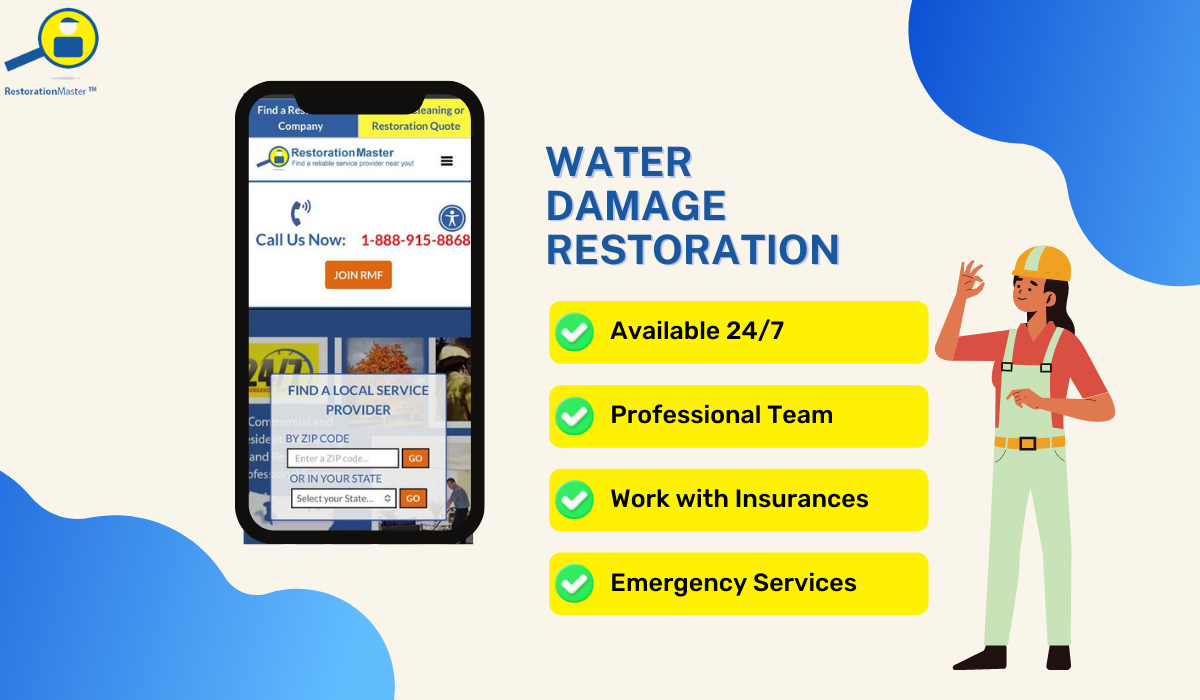
In the event that you are dealing with water damage, it can be very stressful to handle. However, delaying the call for help can only result in more damage and higher costs in the future. When this happens, you can call the water damage restorationWater damage restoration is the professional process of clea... More experts in your local area. They have the experience and equipment to effectively extract all water from the affected area without causing further damage.










